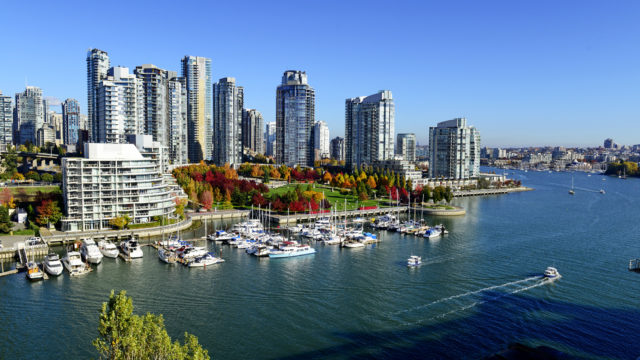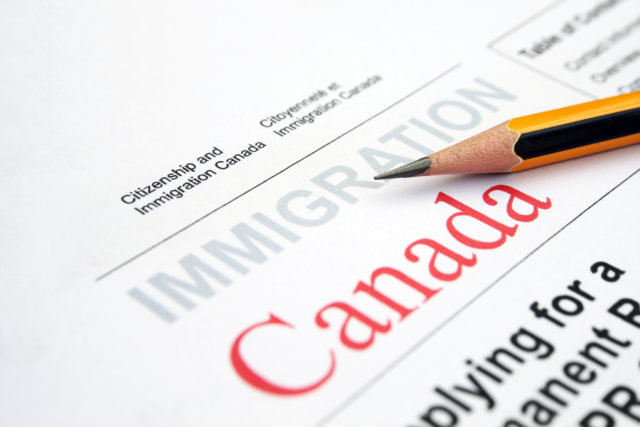BC Provincial Nominee Program (BC PNP)
Entrepreneur Program – Regional Pilot

The British Columbia (BC) Entrepreneur Program – Regional Pilot focuses on attracting global entrepreneurs to regional communities in the province. This will help economic development in the community and encourage investment in urban areas. The Pilot program is expected to be delivered for two years and will be evaluated to ensure both the community and entrepreneur(s) are benefitting from the program. Foreign entrepreneurs that are referred by a participating community are placed in a special separate registration pool for the pilot program. Registrations and applications are prioritized.
Community Eligibility Criteria:
-
- Population of less than 75,000 and located more than 30 km (18.6 m) from a municipality of more than 75,000.
- Communities must demonstrate their capacity to support foreign entrepreneurs through established networks of business support and settlement agencies.
- Participating communities will refer the foreign entrepreneur to the BC PNP if their business concept aligns with their economic priorities. It is a requirement that the foreign entrepreneur must have visited the community and presented their business concept to the communities designated contact person before receiving a referral.
Applicant Eligibility Criteria:
-
- The personal net worth and investment criteria are lower than the existing Entrepreneur Immigration Base Category.
- Language proficiency requirement of a minimum Canadian Language Benchmark (CLB) 4 for the entrepreneur.
- The Regional Pilot is exclusively for entrepreneurs interested in starting a new business. If you are interested in purchasing an existing business, please apply under the general EI – Base Category for the BC PNP.
The Government of BC has provided a list of enrolled communities by development regions, and community profiles for interested entrepreneurs. Each community may have its own unique process for arranging exploratory visits or issuing referrals to foreign entrepreneurs.
For more information about this exciting new program and further details about a community of interest please contact Véronique Malka, Partner and Chair of the Canadian Law Group, at vmalka@ckrlaw.com or visit www.canadianlawgroup.com.
DISCLAIMER: This article is not intended to provide legal advice, and no legal or business decision should be made based on its contents.
2,000 Additional Spaces under the Provincial Nominee Program (PNP)
The Honourable Ahmed Hussen, Minister of Immigration, Refugees and Citizenship (IRCC) announced earlier last month an additional 2,000 spaces under the Provincial Nominee Program (PNP). This reflects his commitment to expanding pathways for temporary foreign worker programs toward permanent residency. The aim is to allow eligible applicants to fully contribute to Canadian society by giving workers who are well established in Canada better access to economic immigration routes that are suited to their qualifications.
The additional 2,000 spaces are allocated to “intermediate skill level” (National Occupation Code C) and will provide a net increase in Temporary Foreign Workers who transition to permanent residence under the Provincial Nominee Program. IRCC stated, “the additional 2,000 spaces will help meet regional labor market needs in key sectors, as determined by provinces and territories.” Additionally, this increase is not expected to impede the IRCC’s progress in decreasing the processing times overall for the PNP programs.
This increase is intended to complement other immigration programs which can help temporary foreign workers become permanent residents, such as the Atlantic Immigration Pilot Program and the new Rural and Northern Immigration Pilot.
The Atlantic Immigration Pilot Program, now in its third year, is on the right track with 1,800 Atlantic employers participating in the pilot program. Under the program, 3,700 job offers were made to skilled workers and international graduates in Atlantic Canada, and the IRCC approved 2,500 applications for permanent residents and their families in the Atlantic region.
Given the success of the program, Minister Hussen announced in March, 2019 that the Atlantic Immigration Pilot Program, initially meant to run until December 2019, will be extended by an additional two years to December 31, 2021. Additional changes to the program give international graduates more time to apply, more flexibility for hiring health care professionals and changes to the requirements for temporary work permit applications (effective May 1, 2019).
For more information about the Provincial Nominee Program, or the Atlantic Immigration Pilot Program, please contact Partner and Chair of the Canadian Law Group Véronique Malka: vmalka@ckrlaw.com or visit www.canadianlawgroup.com.
DISCLAIMER: This article is not intended to provide legal advice, and no legal or business decision should be made based on its contents.
Regulation of Immigration & Citizenship Consultants Strengthened in Canada

The Honourable Ahmed Hussen, Minister of Immigration, Refugees and Citizenship (IRCC) announced earlier last month an additional 2,000 spaces under the Provincial Nominee Program (PNP). This reflects his commitment to expanding pathways for temporary foreign worker programs toward permanent residency. The aim is to allow eligible applicants to fully contribute to Canadian society by giving workers who are well established in Canada better access to economic immigration routes that are suited to their qualifications.
The additional 2,000 spaces are allocated to “intermediate skill level” (National Occupation Code C) and will provide a net increase in Temporary Foreign Workers who transition to permanent residence under the Provincial Nominee Program. IRCC stated, “the additional 2,000 spaces will help meet regional labor market needs in key sectors, as determined by provinces and territories.” Additionally, this increase is not expected to impede the IRCC’s progress in decreasing the processing times overall for the PNP programs.
This increase is intended to complement other immigration programs which can help temporary foreign workers become permanent residents, such as the Atlantic Immigration Pilot Program and the new Rural and Northern Immigration Pilot.
The Atlantic Immigration Pilot Program, now in its third year, is on the right track with 1,800 Atlantic employers participating in the pilot program. Under the program, 3,700 job offers were made to skilled workers and international graduates in Atlantic Canada, and the IRCC approved 2,500 applications for permanent residents and their families in the Atlantic region.
Given the success of the program, Minister Hussen announced in March, 2019 that the Atlantic Immigration Pilot Program, initially meant to run until December 2019, will be extended by an additional two years to December 31, 2021. Additional changes to the program give international graduates more time to apply, more flexibility for hiring health care professionals and changes to the requirements for temporary work permit applications (effective May 1, 2019).
For more information about the Provincial Nominee Program, or the Atlantic Immigration Pilot Program, please contact Partner and Chair of the Canadian Law Group Véronique Malka: vmalka@ckrlaw.com or visit www.canadianlawgroup.com.
DISCLAIMER: This article is not intended to provide legal advice, and no legal or business decision should be made based on its contents.



